What do we learn in Grade 1:
As you may have heard, Learn Alberta has released a new curriculum for English Language Arts and Literacy, Mathematics and Physical Education and Wellness.
Here is a link to parent information on the Learn Alberta Website - Click Here
We are continuing with the Science, Social Studies, Religion and Art curriculums that are already in place. Click the link below to learn more about these subjects.
Grade One at a Glance
https://www.learnalberta.ca/content/mychildslearning/gradeataglance/grade1.pdf
All About Grade 1
Religion: Students will explore five units that revolve around the liturgical year.
Unit 1: I Am a Child of God
Unit 2: The Road to Bethlehem
Unit 3: My Life in Jesus
Unit 4: The Story of Lent
Unit 5: Jesus Is Always with Us
Language Arts:
English language arts and literature involves the applications of the English language through the interrelated strands of reading, writing, listening, speaking, viewing, and representing. Engagement with a wide variety of texts offers students opportunities to expand their thinking beyond personal experiences, to think critically about ideas and information, and to explore creative expression. Focusing on developing the ability of students to communicate effectively in a variety of contexts, to inform, persuade, or entertain, English language arts and literature also aims to spark the imagination, inspire a love for learning, and develop appreciation for the rich diversity of human experiences shared through language, literature, and story. Experiences in English language arts and literature help students develop deep understandings of others and themselves, build and strengthen interpersonal relationships, and engage in responsible citizenship.
Home Reading: Students are encouraged to read 15-20 minutes every evening.
Math: Students will explore Math through a hands-on approach using various materials and manipulatives. Students will also develop their "critical thinking' and 'problem solving' skills by answering open-ended questions, finding different ways to solve a problem and reflecting on their work.
Engaging with mathematics allows students to develop logical thinking skills, which contribute to effective decision making and problem solving. Students are able to extend their thinking beyond personal experiences through flexible and collaborative learning opportunities. Experiences with mathematics help students develop appreciation for the patterns and relationships that describe multiple aspects of the world and its future possibilities.
Science: Through hands-on exploration and project-based learning students will investigate, build, explore and develop their inquiry and problem-solving skills. Students have started to explore our first unit on "Seasonal Changes."
Science allows students to nurture curiosity, ask and answer questions, explore scientific and technological concepts, and acquire knowledge and understanding of the world. Science provides a reliable basis for decision making and is essential in developing innovative ideas and solutions. It includes the critical thinking skills, scientific knowledge, and civic literacy required to respond to relevant personal, societal, and environmental issues. Students develop critical reasoning and scientific literacy through exploring science concepts and applying scientific methods. Scientific knowledge is enriched through the shared contributions of people from diverse cultures and perspectives. Science and technology are deeply interwoven in our daily lives. Together, they enable society to build and share knowledge, innovate, improve quality of life, and predict future events.
Social Studies: Students will learn about belonging and being active and responsible citizens. Students will listen, share and learn about other traditions, groups, and cultures. They will also be able to explore their family’s history and share with their peers.
Physical Education: please make sure your child has appropriate running shoes, as safety is important. There are times we will be going outside for class, please ensure your child is dressed for the weather.
Homework: In grade one, homework consists of approximately 15-20 minutes of reading and review of heart words. There may be other homework to review concepts taught in class or complete work not finished. There will also be occasional projects sent home throughout the year.